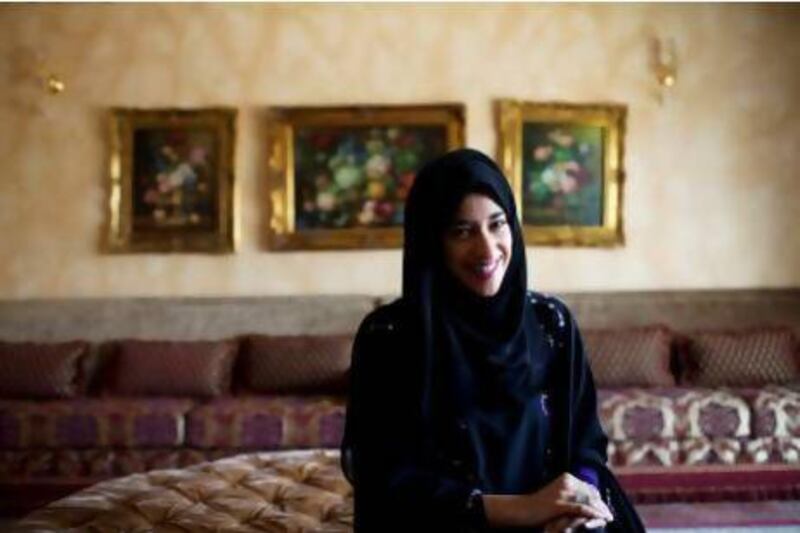ABU DHABI // More than half of Emirati women would consider plastic surgery to improve their body image, a study reveals.
A poll looking at religion and its relationship with depression, eating attitudes and body image surveyed 416 Emirati women between the ages 17 and 35.
Half were unhappy with their bodies and 51.2 per cent would go under the knife in pursuit of perfection.
Thirty per cent of those surveyed were at risk of an eating disorder or had symptoms of anorexia.
"Approximately half wanted to change the way they looked," said the author of the study, Meera Al Mutawa, a 22-year-old psychology graduate and nutrition major at Zayed University. "I found it shocking."
Ms Al Mutawa, of Abu Dhabi, carried out the survey to see if religion played a part in protecting Emiratis from depression and negative attitudes towards eating and body image.
"The more religious the person, the less likely they were to be depressed," she said.
Although half the women asked said they would consider surgery, only 1.2 per cent had actually had a procedure.
And the number of respondents who would have non-surgical treatments such as Botox was less than those who would have invasive surgery - 43.7 per cent.
"The number of women in this age group (17 to 35) who want surgery is increasing more and more," said Dr Abdulbaqi Al Khatib, a plastic surgery consultant at Burjeel Hospital in Abu Dhabi.
The most popular form of surgical treatment is rhinoplasty - changing the shape of the nose - or breast augmentation, he said, and more than 60 per cent of patients who opt for cosmetic surgery return for more.
Dr Al Khatib said he would only approve surgery for women who wanted to "slightly improve their silhouette or contour" and would refuse those with unrealistic expectations or signs of depression.
"We try to avoid those with exaggerated expectations," he said. "For example, if a person came in with a magazine to show what they want to look like then I would say no because this is unacceptable.
"We can only help a person to look a better version of who they are.
"Even those that only need a very minor change, we try to tell them they are good as they are."
Dr Al Khatib said that after the age of 35 the most common procedures were tummy tucks and liposuction. He attributed this to Emirati women often having several children and wanting to get back their pre-pregnancy figure.
The study found that people with abnormal eating attitudes were more likely to have depressive symptoms and more likely to consider cosmetic surgery.
"The willingness for plastic surgery is really scary," said Dr Veena Luthra, of the Abu Dhabi-based American Centre for Psychiatry and Neurology.
"A thorough psychological assessment is necessary before surgery to make sure the person is psychologically stable and has realistic expectations from surgery."
Dr Luthra said the growing popularity of cosmetic procedures was worrying because the quest for perfection was often fruitless.
"The dissatisfaction with body is related to the role of media and cultural expectations and expectations, such as 'you cannot be too rich or too thin'," she said.
The study also showed that 25.8 per cent of respondents showed moderate (20.2 per cent) depression or severe (5.6 per cent) depressive symptoms, while 30 per cent were at risk of an eating disorder or had symptoms of anorexia.
"Those who were depressed were more likely to want to change their body image and had worse eating attitudes," Ms Al Mutawa said.
"Dieting and being thin is a desirable image - it is probably more celebrated now than it is stigmatised."
She feels the increased exposure to western cultures and influences "that associate thinness with beauty, smartness and popularity" could be a contributing factor to the high levels of body dissatisfaction.
The study, which Ms Al Mutawa hopes will be published, showed that religion or religious coping strategies may be an under-utilised psychiatric intervention, she said.
[ jbell@thenational.ae ]





